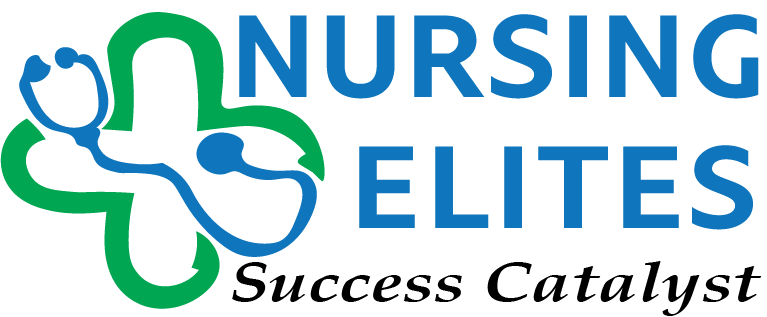According to BeMo, nursing school acceptance rates reached a record low of 66% within the last year as most students failed to meet the nursing school entry cut. Choosing a nursing school entrance exam that aligns with your core abilities increases your chances of passing the test and getting into a desired nursing program. In this post, our expert test-takers cover the different nursing school entrance exams required for admission and the content tested in each exam to help you make an informed choice.
All the Nursing School Entrance Exam
All prospective nursing students must take a specific entrance exam before enrolling in a nursing school. The entry exam tests applicants’ academic aptitude, communication, problem-solving abilities, and medical field knowledge. Here are the types of nursing school entrance exams:
National League for Nursing Pre-Admission Exam (NLN PAX)
The NLN PAX exam is an entrance nursing test for licensed practicing nurses (LPN) and registered nurses (RN) pursuing a bachelor’s degree program. The exam consists of three sections with multiple-choice questions on science (60 questions), math (40 questions), and verbal (60 questions). It takes around two to three hours for students to complete the exam, and schools independently award marks to applicants based on their ranking system.
Kaplan Nursing School Admission Test
The Kaplan nursing school admission test is for students pursuing RN and LPN programs at a certified institution. The test examines the basic skills nurses need in nursing school, such as reading, writing, science, math, and critical thinking. Generally, it takes about two to three hours to answer the 180 questions across the different topics on the exam, and schools determine final scores. However, most prefer an average score of 60% to 70%.
Nursing Entrance Test (NET)
The NET exam is a popular nursing program exam. It has six sections, one covering basic high-school mathematics and the other five testing students’ reading, decision-making, problem-solving, and learning style abilities. Many schools require an average score of 55 on the reading skills section, 65 on the math section, and any other score on the remaining four parts based on the school’s internal marking system.
The Psychological Services Bureau Registered Nursing School Aptitude Exam
The PSB created this aptitude exam for registered nurses looking to advance their careers or knowledge. Questions on the aptitude test examine the applicants’ understanding across five key sections, including academics, natural sciences, reading, spelling, and vocational adjustment index. Each section of the exam has questions distributed as follows:
- 30 academic aptitude questions (verbal, non-verbal, and arithmetic)
- 90 natural science questions (physics, chemistry, and biology)
- 40 reading questions
- 50 spelling questions
- 90 vocational adjustment index questions
The PSB exam time can take an hour to an hour and thirty minutes based on complexity, and schools determine students’ final scores internally. Many schools recommend students prepare for the exam using sample questions on the PSB website or the Mometrix study guide.
General Healthcare Exams
Some tests aren’t specifically designated for nursing programs but for general healthcare professionals. These tests are in select institutions, examining high-school knowledge and life skills required in medicine. The following are the common healthcare exams:
Test of Academic Skill (TEAS)
The (TEAS) is for students aspiring to enroll in an RN and LPN nursing program. It consists of four sections that test students’ reading, math, science, and English/vocabulary skills. The reading section contains 53 questions examining students’ ability to read maps, graphs, and passages. The math section has 36 questions on algebra, geometry, and statistics, while the 53 science questions examine human anatomy and physiology.
The remaining 28 English questions test students’ articulation abilities. Usually, the standard TEAS exam takes three and a half hours, and schools assign scores individually, but 60% to 70% is the most acceptable range.
Health Education Systems, Inc. (HESI)
The HESI is a standard examination for RN and LPN nursing school program applicants. It has nine sections with multiple-choice questions divided into two main parts.
The first part of the exam has 50 high-school level math, 25 biology, 25 physics, 25 chemistry, 47 reading, 50 grammar, 50 vocabulary, and 25 anatomy questions. The second section tests students’ personality and learning styles (30 questions) and critical thinking ability (30 questions). Also, the exam takes two to three hours, and the average acceptable score in many schools is 75%.
PSB Health Occupations Aptitude Exam
The PBS (HOAE) exam is for registered nurses pursuing a bachelor’s or associate degree in nursing. The exam consists of five sections with multiple-choice questions on reading, spelling, natural sciences, math, and vocabulary (verbal and nonverbal). It takes around 1 hour and 45 minutes to complete the test, and the acceptable scores and cost of the exam vary in individual schools.
Passing Your Nursing School Entrance Exam
These nursing school entrance exams test knowledge of natural science, math, English, and reading. They also examine students’ critical thinking abilities and personalities to see if they fit in the medical field. If you have an upcoming proctored nursing school entrance exam, our experts can help take the exam for you. We use our software to bypass the strict exam deterrent mechanisms, allowing us to do exams for students.



